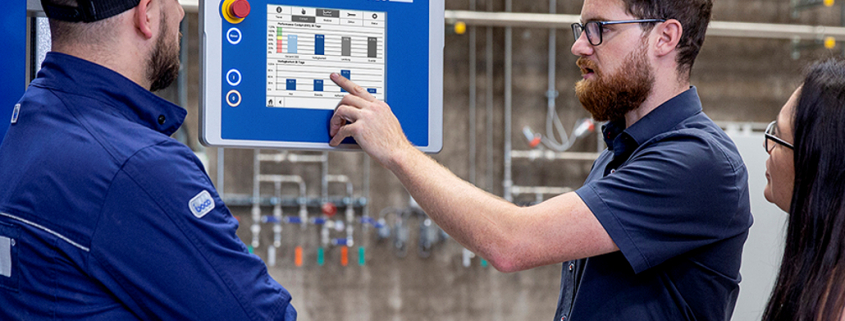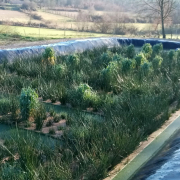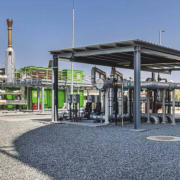Industrial Wastewater Treatment with Industry 4.0
According to German provider H2O GmbH, VACUDEST vacuum distillation systems ensure the safe separation of substances in wastewater from the chemical/pharmaceutical industry.
The internationally active company has further developed its VACUDEST vacuum distillation systems for treating wastewater from the chemical-pharmaceutical industry, and has presented the first wastewater treatment system with access to Industrie 4.0 at the trade show ACHEMA in Frankfurt in August this year.
The system with the new “Smart Service Cockpits“ would provide users with a new quality of process monitoring for wastewater treatment directly on the machine control, H2O emphasized in a press release. “The term ‘Industrial Internet of Things‘ (IIoT) refers to the process of collecting huge amounts of data from intelligently networked machines in the industry. Those who evaluate, understand and efficiently use this data benefit from a continuous optimization cycle and thus from high system availability and optimum machine performance with less wear.” For the VACUDEST vacuum distillation systems, this would mean that users not only get an overview of the performance of their water treatment.
“Through the permanent condition monitoring and the continuous optimization suggestions, a long-lasting high system availability with maximum machine efficiency and less downtime can be achieved through predictive maintenance. The result: more process reliability, lower operating costs, less stress.” As reported, vacuum distillation systems use the principle of physical substance separation according to boiling point differences. Thus, active pharmaceutical ingredients (API), medicines, hormones, trace substances, pesticide effluents, native oils, emulsifiers, and other substances remain in the evaporation residue – and are safely separated thanks to technologies from H2O GmbH such as the Clearcat condensation stage. “In one treatment step, up to 98 percent reusable water is produced from 100 percent wastewater.” Due to these savings, the investment in a vacuum distillation system usually would pay for itself in less than two years.
(Published in GLOBAL RECYCLING Magazine 3/2022, Page 43, Photo: H2O GmbH)







